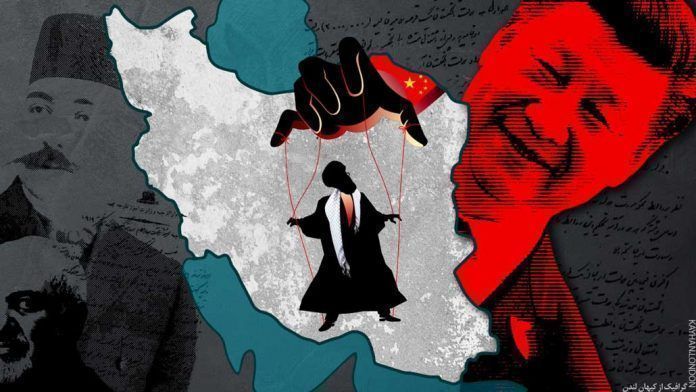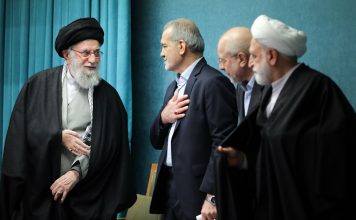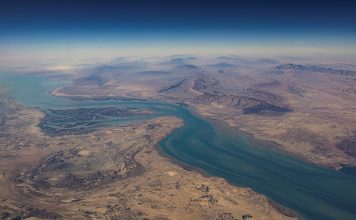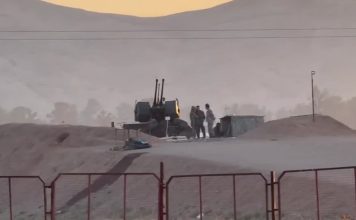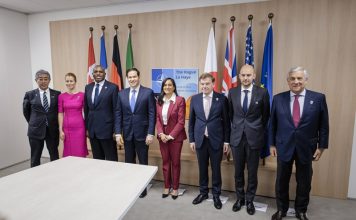By Ahmad Rafat
China’s role as a peace broker between Iran and the Kingdom of Saudi Arabia (KSA) is part of Beijing’s broader political and economic policies to strengthen its influence in the Middle East, especially in the Persian Gulf.
The relationship between Iran and the Saudi Kingdom soured after the occupation of the Saudi Embassy in Tehran in 2016.
The Persian Gulf holds special foreign policy significance for China, an economic giant, and principal energy importer.
Beijing has well-founded concerns over tensions between Iran and Saudi Arabia, given that China is the main trading partner of both countries in the region.
The agreement between Iran and Saudi Arabia, brokered by China, could benefit all three countries.
While Beijing and Riyadh arguably stand to benefit more than Tehran from the agreement, the Islamic Republic has already launched a propaganda campaign even before any of the accord’s articles have been enacted.
Meanwhile, many in Tehran believe the agreement signals China’s increased role in the Persian Gulf and the U.S.’s diminished influence in the region.
Tehran believes the agreement will prompt Arab countries, which normalized ties with Israel after the signing of the Abraham Accords, to distance themselves from Israel.
ANALYSIS-Frustrated Khamenei Pushed for Saudi-Iran Deal Clinched in China
However, implementing the terms of the agreement mediated by China and achieving its goals will be challenging, and will require Iran and Saudi Arabia to resolve their differences and problems of the past four decades.
Although China has played a crucial role in getting Tehran and Riyadh to sign the accord, parts of which remain secret, the two countries opened a dialogue two years ago with the help of Oman and Iraq. Iranian and Saudi delegations have held several talks since then.
Chinese President Xi Jinping reportedly entered the talks after his trip to Saudi Arabia in December.
While some sources in Tehran have claimed that President Xi became involved in the negotiations on a request from Saudi Arabia, European sources believe Beijing assumed the role of mediator only to broaden its influence in the Persian Gulf and the Middle East.
The Chinese President reportedly forced Iranian President Ebrahim Raisi to engage in the negotiations after the latter visited Beijing in February.
While Saudi Arabia needed to ease tensions with Iran to improve its overall foreign policy, the Islamic Republic was desperate to reassert itself in the region after it suffered further global isolation caused by the popular uprising that started in September in Iran with the “woman, life, freedom” movement. Showing flexibility in its foreign policy towards Saudi Arabia was the price the Islamic Republic had to pay.
While the agreement will put Iran further in China’s debt, Riyadh and Beijing will have a more balanced relationship, because Saudi Arabia is not desperate for Beijing’s economic investment or international support.
In addition, the Islamic Republic needed the support of a superpower to help it through challenging times, given that Tehran’s relationship with the West is at its lowest point ever, following the nationwide unrest in the past few months and the failure of talks to revive the 2015 Joint Comprehensive Plan of Action (JCPOA), the Iran nuclear deal.
Russia cannot help Iran because of its war in Ukraine. Therefore, China is the only superpower that could assume a crucial role.
In an unprecedented move, the leader signed several statements which could be construed as taking a stance against Iran and the Islamic republic, including the three Iranian islands whose ownership is disputed by the Arab States of the Persian Gulf.
While the Islamic Republic has always reacted strongly in the dispute over the ownership of the islands, it downplayed the issue by releasing a low-key statement. Some speculate that Iran conceded to China to mediate the talks with Saudi Arabia.
Unlike Iran, Saudi Arabia has managed its challenges and sought allies and partners in the international community while strengthening its ties with China. Riyadh has reportedly briefed the White House regularly on the talks with Iran.
Easing tension with Iran will give Saudi Arabia more room to develop its ties with Israel, expand its unofficial talks with the government of Prime Minister Benjamin Netanyahu, and demand greater consideration.
The Beijing agreement is just a document, and its success will depend on several objectives that are not easily achieved.
Saudi Arabia Could Invest in Iran ‘Very Quickly’ After Agreement – Minister
Iran and Saudi Arabia’s relationship is fraught with problems, including the Islamic Republic’s meddling in the internal affairs of regional countries, especially Lebanon, which forced Saudis out of that country; and Tehran’s support for Bashar al-Assad’s regime in Syria, which is the principal reason for the protracted war in that country, and the proxy war in Yemen which put Iran and Saudi Arabia on opposing sides.
Saudi Arabia’s primary expectation could be for Iran to stop supporting the Houthi rebels, an opportunity to end the war and bring Yemenis to the negotiation table. It could lead to the establishment of a unified government that includes Riyadh-supported groups.
Saudi Arabia has played a bigger role in Iraq and Syria in recent years by diminishing Iran’s influence in those countries. Meanwhile, political and economic centers in Lebanon are optimistic about the agreement.
A recent decision by Bashar al-Assad, asking Hezbollah to withdraw its forces from Syria, could lay the groundwork for Damascus to improve ties with Saudi Arabia and other Arab countries.
The agreement between Tehran and Riyadh could prompt other Arab countries to improve ties with Iran.
An Iranian delegation has started talks with Bahraini officials in Manama on reopening embassies in their respective capitals.
Egypt has announced it will issue tourist visas to the Islamic Republic passport holders at the airport soon.
The United Arab Emirates (UAE) and Iran reportedly are in discussions around developing economic and trade ties.

